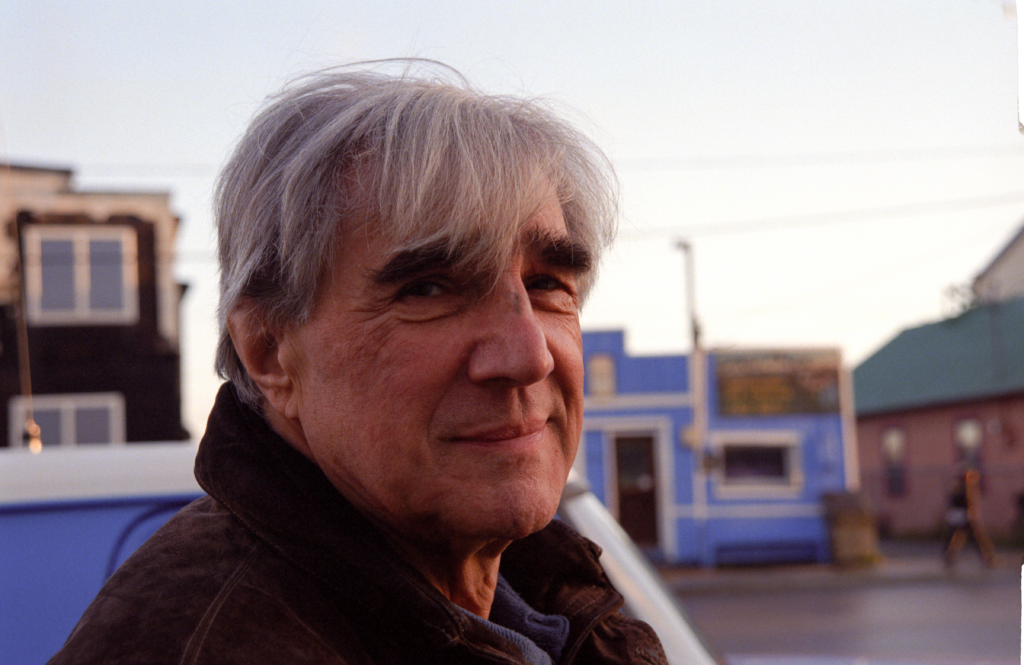Jean Malaurie, 1922-2024
Jean Malaurie passed away at the age of 101 years, on February 5 2024, at his home in Dieppe, France. Professor Malaurie was Emeritus Director of Research at the French National Centre for Scientific Research (CNRS) and Director of Studies at the École des Hautes Études (EHESS) in Paris. He found fame as the author of The Last Kings of Thule and the founder of the prestigious “Terre Humaine” book series.
Born on the 22nd of December, 1922, in Mainz, Germany, Jean Malaurie was of French and Scottish descent. By training he was a geomorphologist who defined himself as an anthropo-geographer. Subsequently, Malaurie undertook thirty-one expeditions to the Arctic, including to Greenland, the central Canadian Arctic, Alaska, and, in 1990, to the Autonomous Okrug of Chukotka in Russia. In the winter of 1950-51, during his famous cartographic mission to North-West Greenland, he undertook demographic work with the Thule people. This prolonged field trip in the company of two Inuit couples inspired his classic account The Last Kings of Thule, published in French in 1955. This has been the most widely-distributed book on Greenland in the world, appearing in more than 20 translations including two English editions in 1956 and 1982. It was first title of the prestigious “Terre Humaine” book series that he founded at Plon Publishers in Paris in 1955, followed by Claude Lévi-Strauss’ seminal Tristes Tropiques (1955, Engl. ed. 1961) and many other highly influential works of narrative ethnography including Le Cheval d’Orgueil by Per Jakez Hélias (Engl. ed. The Horse of Pride: Life in A Breton Village, 1980), Philippe Descola’s account Les Lances du Crépuscule (1993, Engl. ed. The Spears of Twilight: Life and Death in the Amazon Jungle, 1996) and Barbara Glowczewski’s Rêves en colère: avec les Aborigènes australiens (2004).
Malaurie was educated at the French school in Mainz where his father taught history until 1930, Lycée Hoche in Versailles and Lycée Henri IV where he started to prepare for the entrance exam for École Normale Supérieure when he was called to the Mandatory Work Service (STO) imposed on young Frenchmen of his generation by the Nazi occupying forces. He refused to join the STO and thereafter went into hiding until the liberation of Paris. After the war, he studied Geography at the University of Paris. He was appointed a member of the French Polar Expeditions conducted by the ethnologist and explorer, Paul-Émile Victor in the late 1940s thanks to a recommendation by Emmanuel de Martonne, the Professor of Geography who taught Malaurie. Having helped to survey Skansen Hill on Disko Island with the help of Greenlander Peter Geisler, he decided to continue his field work alone in the Thule area, together with his Inghuit companions. On his return from Thule, he interrupted his PhD research in order to write The Last Kings of Thule and to witness and protest against the forced relocation of the Inghuit caused by the construction of the Thule U.S. airbase.
He was one of the first directors of studies appointed at the École Pratique des Hautes Études, sixth section (later called École des Hautes Études) in Paris at the age of 35. There he created the Center of Arctic Studies which later served as a model for the Arctic Centre at the University of Lapland in Rovaniemi. He was also appointed Director of Research at the CNRS and published hundreds of research articles as well as a whole series of books, while founding, in the 1960s, Inter-Nord, the only French polar journal, now published in open access online at miarctic.org where his full bibliography is also available. Malaurie made a lasting contribution to the study of the Inghuit of North-West Greenland and their ethno-history thanks to The Last Kings of Thule and his study of the region’s exploration history Ultima Thule: Explorers and Natives in the Polar North (2003). His magisterial two-volume account Hummocks (1999) relates his extensive field experience in four circumpolar regions (North-West Greenland, the central Canadian Arctic, the Bering Strait and Chukotka). A selection of his stunning photography was published in the album Call of the North (2001). He also directed a series of films for French television and appeared in countless radio and television programmes.
Throughout his exceptional career spanning more than 70 years, Malaurie received many distinctions including the Order of the Dannebrog, the Patron’s Medal of the Royal Geographical Society, the Mungo Park Medal of the Royal Scottish Geographical Society and the Gold Nersornaat Medal of the Greenlandic Government. He was also Great Commander of the Légion d’honneur and UNESCO Goodwill Ambassador for the Arctic Polar Regions. He published his memoirs De La Pierre à L’Âme (From Stones to the Soul) in 2022. An exhibition of his pastels was exhibited in 2023 at the Oceanographic Museum in Monaco and the University of Greenland, as well as at UNESCO in Paris in January 2024. In 2022, he donated his Arctic collections (objects, photographs, notebooks, personal correspondence, and archives) to the Oceanographic Institute/Prince Albert 1st of Monaco Foundation which supports the Malaurie Institute of Arctic Research Monaco-UVSQ (MIARC), founded in 2021 at the University of Versailles Saint-Quentin-en-Yvelines, an institutional associate member of the University Paris-Saclay. His wife Monique died in 2023. He leaves behind his daughter Éléonore and his son Guillaume, as well as three grandchildren.
Professeur Jan Borm
Directeur de l’Institut de recherches arctiques Jean Malaurie Monaco-UVSQ
Vice-Président délégué en charge des Relations Internationales
Université de Versailles Saint-Quentin-en-Yvelines
UArctic Chair in Arctic Humanities
Email : jan.borm@uvsq.fr
To cite this article:
BORM, JAN. 2024 ‘Jean Malaurie, 1922-2024’. Obituaries. Royal Anthropological Institute, May 2024. (available online: https://therai.org.uk/archives-and-manuscripts/obituaries/jean-malaurie)


